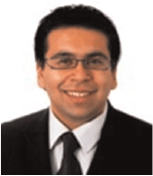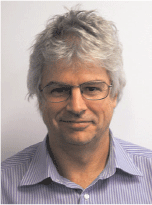Bringing to life line-of-sight for major accident prevention
P. Askew A , V. Mulgund A , L. Tan A and R. Wright BA Schlumberger Business Consulting.
B PTTEP Australasia.
The APPEA Journal 52(2) 641-641 https://doi.org/10.1071/AJ11055
Published: 2012
Abstract
The process safety of exploration and production has evolved since Piper Alpha with safety cases, hazard identification studies (HAZIDs) in design and, more recently, Bow-Ties becoming industry norm; however, recent incidents such as Texas City, Macondo, Varanus Island, and Montara have shown industry and regulators from the UK, Australia and beyond that complacency cannot be allowed. The industry has been acting on process safety, but it has struggled to bring it to life in daily operations.
Missed warning signals, poor change management, failure to follow procedures, capability issues, and lack of communication have been preventable factors in these incidents. Recent efforts in Australia, using the line-of-sight methodology, are advancing process safety by bringing to life major accident prevention.
The methodology focuses organisations on systematic management of preventative barriers to accidents and can be applied to all elements of the value chain. The methodology involves:
-
conducting analysis of safety cases;
-
assessing performance standards and safety to identify critical preventative barriers;
-
developing measures and assigning accountabilities to monitor barrier effectiveness; and,
-
developing tracking and reporting systems to provide visibility across operations management.
A case study about an Australian operator has shown benefits in improved safety and operational performance. This is done by focusing the operators on critical barriers (as well as their normal daily jobs), better visibility on the state of operations, and hence allowing a proactive approach to managing process safety. The system is in its infancy, but it is being improved to support line-of-sight becoming a standard tool across the industry.

Philip Askew is a vice president for Schlumberger Business Consulting in Australasia. He is an experienced consultant, engineer, and general business manager with oil-and-gas-industry experience in Australia, Thailand, India, and the UK. He has a strong background in growth strategies, operational excellence, financial modelling, reorganisation, and change management. He has led the development of the LoS concept and directed the implementation of the system for an Australian operator across their drilling, projects and construction, and production functions. He holds a BEng (petroleum), first-class honours from UNSW. He also holds an MBA from the University of Virginia Darden Graduate School of Business, USA. |

Vikrant is an associate manager with Schlumberger Business Consulting in Australia. During a career spanning a decade in oil and gas, he has worked across Asia Pacific, Middle East, and Africa with reputed multinational companies where he has developed core competencies in LNG developments, project management and execution of capital projects, operational risk management, and process engineering. He has led the implementation of LoS across the project and construction and production departments of an Australian operator. He has a BEng (chemical) from the University of Mumbai and an MBA from the Australian Graduate School of Management (AGSM). |

Leesa Tan is a senior manager with Schlumberger Business Consulting in Australia. She has about 10 years of consulting experience, serving both the private and public sectors. She has worked with several NOCs in Asia Pacific. Leesa led the implementation of LoS for the drilling function of an Australian operator. She has also implemented drilling capability management system for a major Australian operator. She holds a BEcon from Sydney University as well as a postgraduate degree in Finance from UNSW. |

Robin Wright is a health, safety, and environmental (HSE) professional with 30 years, experience as an adviser and manager with various companies in the oil and gas industry. He has maintained a leading edge approach through working with Shell in Aberdeen, The Hague, and Brunei and more recently in Australia with Woodside, BHP Billiton, and PTTEP. He has a BSc and a PhD in natural science subjects. |


